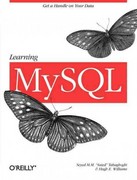Question
(PLEASE WRITE IN BASIC C++ CODE, PLEASE include comments (especially for Store.cpp), DO NOT USE #include or .reserve()) You will be writing a (rather primitive)
(PLEASE WRITE IN BASIC C++ CODE, PLEASE include comments (especially for Store.cpp), DO NOT USE #include
You will be writing a (rather primitive) online store simulator. It will have three classes: Product, Customer and Store. To make things a little simpler for you, I am supplying you with the three .hpp files. You will write the three implementation files. You should not alter the provided .hpp files.
Product.hpp
#ifndef STORE_HPP
#define STORE_HPP
#include
#include
#include "Customer.hpp"
class Store
{
private:
std::vector
std::vector
public:
void addProduct(Product* p);
void addMember(Customer* c);
Product* getProductFromID(std::string);
Customer* getMemberFromID(std::string);
std::vector
std::string addProductToMemberCart(std::string pID, std::string mID);
double checkOutMember(std::string mID);
};
#endif
Customer.hpp
#ifndef CUSTOMER_HPP
#define CUSTOMER_HPP
#include
#include "Product.hpp"
class Customer
{
private:
std::vector
std::string name;
std::string accountID;
bool premiumMember;
public:
Customer(std::string n, std::string a, bool pm);
std::string getAccountID();
std::vector
void addProductToCart(std::string);
bool isPremiumMember();
void emptyCart();
};
#endif
Store.hpp
#ifndef STORE_HPP
#define STORE_HPP
#include
#include
#include "Customer.hpp"
class Store
{
private:
std::vector
std::vector
public:
void addProduct(Product* p);
void addMember(Customer* c);
Product* getProductFromID(std::string);
Customer* getMemberFromID(std::string);
std::vector
std::string addProductToMemberCart(std::string pID, std::string mID);
double checkOutMember(std::string mID);
};
#endif
Here are descriptions of methods for the three classes:
Product:
A Product object represents a product with an ID code, title, description, price and quantity available.
constructor - takes as parameters five values with which to initialize the Product's idCode, title, description, price, and quantity available
get methods - return the value of the corresponding data member
decreaseQuantity - decreases the quantity available by one
Customer:
A Customer object represents a customer with a name and account ID. Customers must be members of the Store to make a purchase. Premium members get free shipping.
constructor - takes as parameters three values with which to initialize the Customer's name, account ID, and whether the customer is a premium member
get methods - return the value of the corresponding data member
isPremiumMember - returns whether the customer is a premium member
addProductToCart - adds the product ID code to the Customer's cart
emptyCart - empties the Customer's cart
Store:
A Store object represents a store, which has some number of products in its inventory and some number of customers as members.
addProduct - adds a product to the inventory
addMember - adds a customer to the members
getProductFromID - returns pointer to product with matching ID. Returns NULL if no matching ID is found.
getMemberFromID - returns pointer to customer with matching ID. Returns NULL if no matching ID is found.
productSearch - return a sorted vector of ID codes for every product whose title or description contains the search string. The first letter of the search string should be case-insensitive, i.e. a search for "wood" should match Products that have "Wood" in their title or description, and a search for "Wood" should match Products that have "wood" in their title or description. You may use string::find() and string::npos (Links to an external site.)Links to an external site.. You may assume that the search string will consist of a single word.
addProductToMemberCart - If the product isn't found in the inventory, return "product ID not found". If the member isn't found in the members, return "member ID not found". If both are found and the product is still available, call the member's addProductToCart method to add the product and then return "product added to cart". If the product was not still available, return "product out of stock". This function does not need to check how many of that product are available - just that there is at least one. It should also not change how many are available - that happens during checkout. The same product can be added multiple times if the customer wants more than one of something.
checkOutMember - If the member ID isn't found, return -1. Otherwise return the charge for the member's cart. This will be the total cost of all the items in the cart, not including any items that are not in the inventory or are out of stock, plus the shipping cost. If a product is not out of stock, you should add its cost to the total and decrease the available quantity of that product by 1. Note that it is possible for an item to go out of stock during checkout. For example, if the customer has two of the same product in their cart, but the store only has one of that product left, the customer will be able to buy the one that's available, but won't be able to buy a second one, because it's now out of stock. For premium members, the shipping cost is $0. For normal members, the shipping cost is 7% of the total cost of the items in the cart. When the charge for the member's cart has been tabulated, the member's cart should be emptied, and the charge amount returned.
You must submit these files: Product.cpp, Customer.cpp, and Store.cpp. You do not need to submit the .hpp files.
In the main method you use for testing, you should only need to #include Store.hpp. Remember that your compile command needs to list all of the .cpp files.
Step by Step Solution
There are 3 Steps involved in it
Step: 1

Get Instant Access to Expert-Tailored Solutions
See step-by-step solutions with expert insights and AI powered tools for academic success
Step: 2

Step: 3

Ace Your Homework with AI
Get the answers you need in no time with our AI-driven, step-by-step assistance
Get Started


